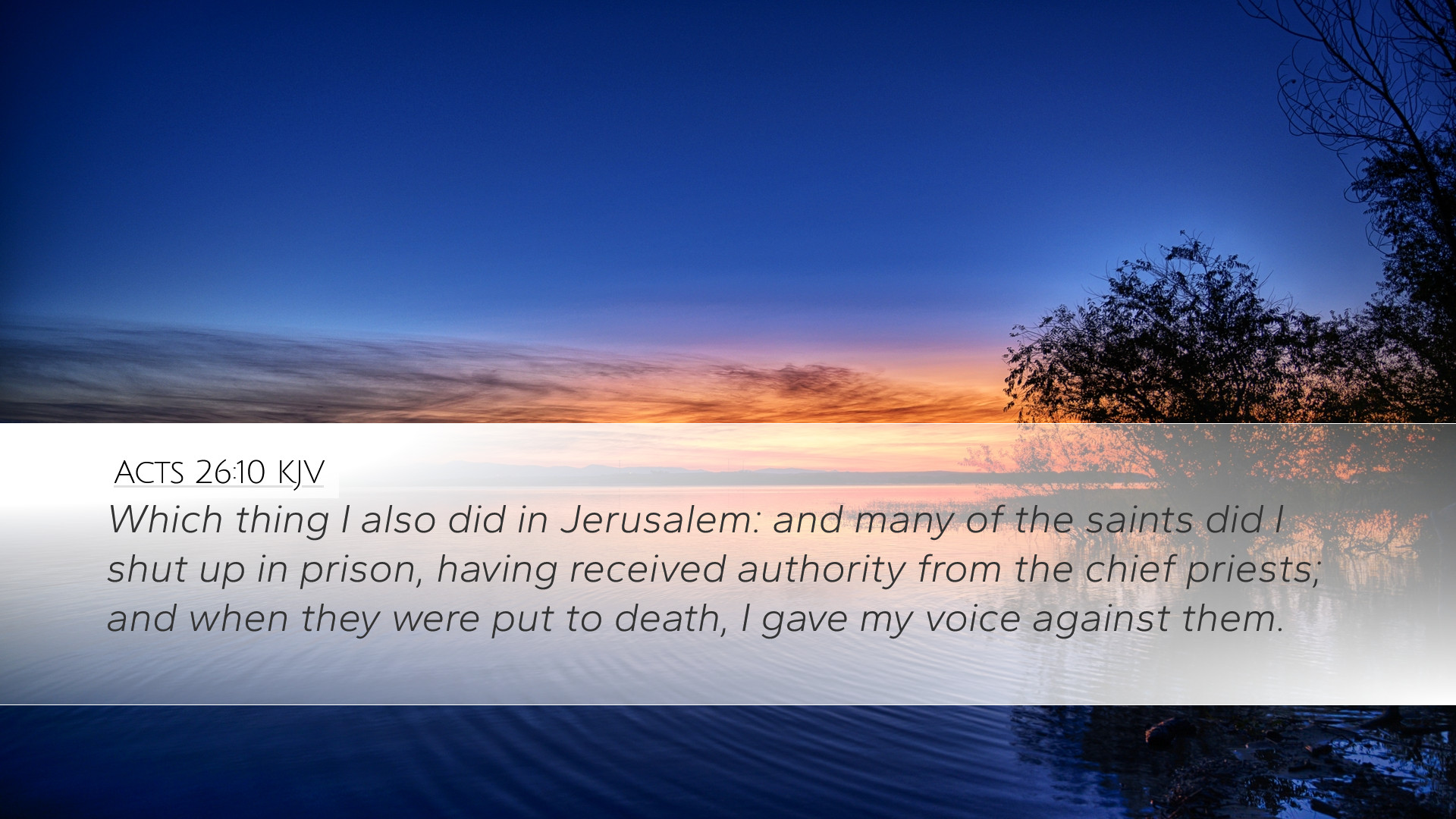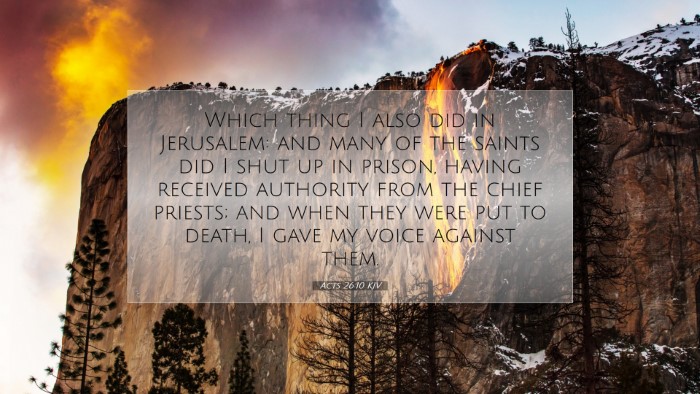Commentary on Acts 26:10
Bible Verse: Acts 26:10 (KJV) - "Which thing I also did in Jerusalem: and many of the saints did I shut up in prison, having received authority from the chief priests; and when they were put to death, I gave my voice against them."
Introduction
Acts 26:10 presents a critical moment in the Apostle Paul’s defense before King Agrippa, as he recounts his past persecutory actions against Christians. The verse serves to emphasize not only the drastic transformation in Paul’s life but also highlights the severe realities faced by the early church.
Contextual Background
This moment occurs during Paul's defense and testimony regarding his conversion experience on the road to Damascus. Prior to this event, Paul was known as Saul of Tarsus, a zealous Jew who actively opposed the followers of Jesus Christ. His admission to having imprisoned believers and consented to their executions illustrates the intense atmosphere of conflict between early Christians and Jewish authorities.
Insights from Public Domain Commentaries
Matthew Henry's Commentary
Matthew Henry emphasizes the importance of acknowledging one's past, particularly in the context of God's redemptive work. He notes that Paul’s past as a persecutor serves to showcase the grace of God that changed him into a proponent of the faith he once sought to destroy. Henry poses the deeper theological insight that “the more vile a sinner, the more the grace of God is magnified.”
Albert Barnes' Notes on the Bible
Albert Barnes focuses on the authority Paul received from the chief priests, reflecting the formal backing of Jewish leadership in the efforts to suppress Christianity. Barnes discusses the implications of Paul’s actions, indicating that the persecutions were not merely acts of personal animosity but carried a sense of religious duty perceived by Paul at that time. He points out the gravity of the phrase “I gave my voice against them,” indicating Paul’s involvement in the judicial killings of believers, portraying an outright commitment to what he believed was the defense of Jewish orthodoxy.
Adam Clarke's Commentary
Adam Clarke provides additional historical context regarding the legal framework of the time, discussing how the authority given to Paul would typically lead to incarcerating Christians for blasphemy. Clarke highlights the emotional weight of Paul’s retrospective confession, suggesting that it could have served as a pretext for the Jewish leaders to recognize the consequences of their actions. Clarke also remarks on the profound irony of Paul’s transformation from a persecutor to an apostle, indicating that such life changes can only be attributed to divine intervention.
Theological Reflections
Acts 26:10 prompts significant theological reflection on the themes of redemption and transformation. It underscores the notion that no one is beyond the reach of God's grace, as demonstrated through Paul's life. This transformation informs ecclesiology, encouraging the church to embrace even those with the most troubling pasts as potential vessels for God's work.
Application for Ministry
- Empathy and Understanding: Pastors and ministry leaders should approach individuals with troubling backgrounds with the same transformative potential as seen in Paul's life.
- Grace and Forgiveness: The narrative compels believers to extend grace and advocate for forgiveness within their communities, holding onto the belief that true change is possible.
- Testimony of Change: Pastors should encourage sharing testimonies as a means to showcase God’s redemptive power in individuals’ lives.
Conclusion
Acts 26:10 is a profound testament to the transformative power of God’s grace operational within the lives of even the most ardent adversaries of the faith. Through the insights gleaned from esteemed public domain commentaries, we are reminded of the importance of acknowledgment, redemption, and the possibility of change, which forms a hopeful narrative for believers today.


